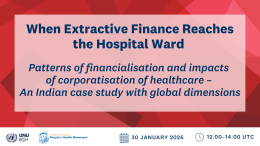The launch of the Liechtenstein Initiative for a Financial Sector Commission on Modern Slavery and Human Trafficking occurred during the UN General Assembly High-Level Week in New York. Speakers included Foreign Ministers, financial sector executives, and members of the Commission including survivor leaders.
According to the best estimate, over 40.3 million men, women and children were in a situation of modern slavery in 2016. That is 1 in every 185 people worldwide. Forced labour alone is estimated to generate over $150 billion of revenue annually. The global financial sector may at times handle funds illicitly generated by human trafficking, and may even unwittingly finance businesses whose supply chains hide modern slavery. Financial exclusion – including lack of access to credit – is an important source of vulnerability to modern slavery.
By bringing together actors from the survivor community, hedge funds, institutional investors, retail banks, global regulators, the UN and the anti-slavery movement, the Liechtenstein Initiative for a Financial Sector Commission on Modern Slavery and Human Trafficking - housed at UNU-CPR - will develop a roadmap for action for the global financial sector to tackle these crimes.
Against this backdrop, speakers considered a range of tools that are already available to the global financial sector to address modern slavery and human trafficking risks, including: Anti-money laundering (AML) and counter-terrorist financing (CFT) tools; Anti-slavery reporting requirements; Human rights due diligence and other responsible lending and investment practices; and Innovation in financial instruments and technology to promote financial inclusion and empower vulnerable communities.



